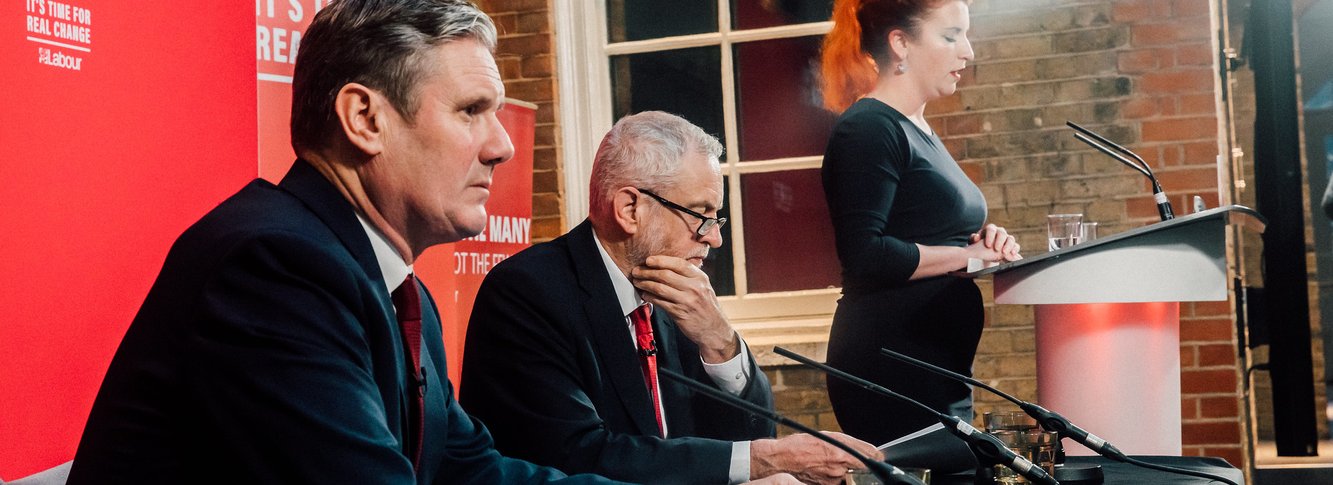| 7 mins read
If a renewed respect for expertise is one result of post-Covid 19 politics then the Labour party, under Keir Starmer, could be in a better position to capitalise than might have been the case with Jeremy Corbyn at the helm. As with most existential crises, the coronavirus pandemic has put a premium on those whose knowledge is evidence-based. Those who continue to elevate ideology or prejudice above facts look silly, dangerous or irrelevant.
Yet ‘expertise’ has always presented something of a problem for democratic politics. Submitting to it has never been a straightforward thing. Expertise evokes ruling by technocracy which, no matter how reasonable its decisions might be, risks offending the healthy self-regard of individual voters in a democracy. Fears become magnified when populism enters the field. A creed which relies on frivolity as much as un-reason tends to find the very notion of expertise redundant where it doesn’t find it sinister.
Corbyn’s discomfort with the 'experts'
Jeremy Corbyn’s Labour party never had the courage to go fully populist, thankfully, but it had no tenderness towards the party’s expertise-worshipping Fabian past either. Corbyn himself was that rare thing in a Labour leader – a man without educational achievements or any apparent intellectual curiosity. His supporters liked to point out that previous Labour figures such as Nye Bevan had also left school without academic qualifications. But that never washed. Bevan was denied by poverty, not a shortage of talent. Corbyn was educated at a private prep school, flunked his A Levels, and dropped out of North London Polytechnic. His failures were all his own.
Also, unlike Bevan, Corbyn never looked comfortable with the idea of expertise or even formal education. Indeed, he could sound contemptuous about university graduates, implying they were socially and intellectually arrogant. “Because I’ve never had any higher education of any sort,” he told Red Pepper in 2015, “I’ve never held in awe those who have had it or have a sense of superiority over those who don’t… Some of the wisest people you meet are sweeping our streets.”
Of course, that conclusion may be correct, but it’s interesting that the road sweepers became a kind of totem for Corbyn – a litmus test of what was true, as well as authentic. Unveiling Labour’s youth manifesto four years later, he announced that it was created by “real experts”, among whom, once more, were the “road sweepers.”
The Village Hampden
In one sense, Corbyn’s deference to road sweepers was respectable Labour doctrine. The party has always been in the business of finding wisdom in the broad mass of the British people and – as Orwell had it in The Lion and the Unicorn – fighting “against the notion that a half-witted public-schoolboy is better for command than an intelligent mechanic.”
Keith Feiling in What is Conservatism? (1930) felt that the Village Hampden – that is to say, the obscure or suppressed genius - was a “myth” and that nothing justified Labour’s belief in “a hoard of buried talent” within the British working class. Labour disagreed. Thomas Gray’s Elegy Written in a Country Churchyard, in which the Village Hampden first appeared, was often referenced in early socialist literature. And no wonder. Without that hoard of buried talent neither the spreading of democracy to industry nor the extension of secondary education made sense – and these were once two of the key pillars of the Labour programme.
Labour and the 'experts'
But there is another sense in which Corbyn’s comments were badly out of tune with the Labour tradition. The belief in the hoard of buried talent always co-existed with a genuine respect for ‘real expertise’, especially as it existed in the academy. And intellectuals recognised this was so, which is why they flocked to the Labour party after the first world war.
Men and women of the stature of the Webbs and the Coles, Leonard Woolf and AJ Toynbee staffed the party’s first advisory committees. These people never had as much influence on policy as they would have liked, and were occasionally targets of class suspicion, but they instinctively recognised that the Labour arty was drawn to expertise in a way that wasn’t true of the Conservatives.
A second generation of economists made even more impact in the 1930s as Labour recovered from the MacDonald debacle. A host of talent, mainly Keynesian (including intermittently Keynes himself), passed through Labour’s policy committees and the purlieus of the party, such as the New Fabian Research Bureau and XYZ club. They didn’t furnish the blueprints exactly, but did much of the heavy lifting that would eventually give shape to the 1945 election manifesto.
Lack of intellectual coherence in Labour’s 2019 manifesto
The contrast with Corbyn’s attempt to harness economic expertise couldn’t be starker. His one effort – the short-lived Economic Advisory Committee – ended with a string of high-profile resignations, including Thomas Piketty, Anastasia Nesvetailova and David Blanchflower. Richard Murphy, another, said later, “There was no policy direction, no messaging, no direction, no co-ordination, no nothing.” He concluded that “Corbynism is an empty shell that opposes capitalism for the sake of the oppressed but has no clue as to what to put in its place.” Many things have been said of Labour’s 2019 manifesto. No one yet has accused it of intellectual coherence. This may be one reason why.
Ultimately, Corbyn’s search for the “real experts” amongst the road sweepers had more in common with Trump (“I love the uneducated”) than it did with the Labour party’s own past. The added tragedy is that, unlike Trump, the uneducated did not love him in return. Not even the pervasive pre-Covid climate of distrusting expertise could rescue Corbyn.
Keir Starmer has many advantages over his predecessor. But one he can easily exploit is likely to be the renewed trust in experts and expertise that will follow the general public’s prolonged, and as yet unfinished, lesson in what expertise can achieve.

